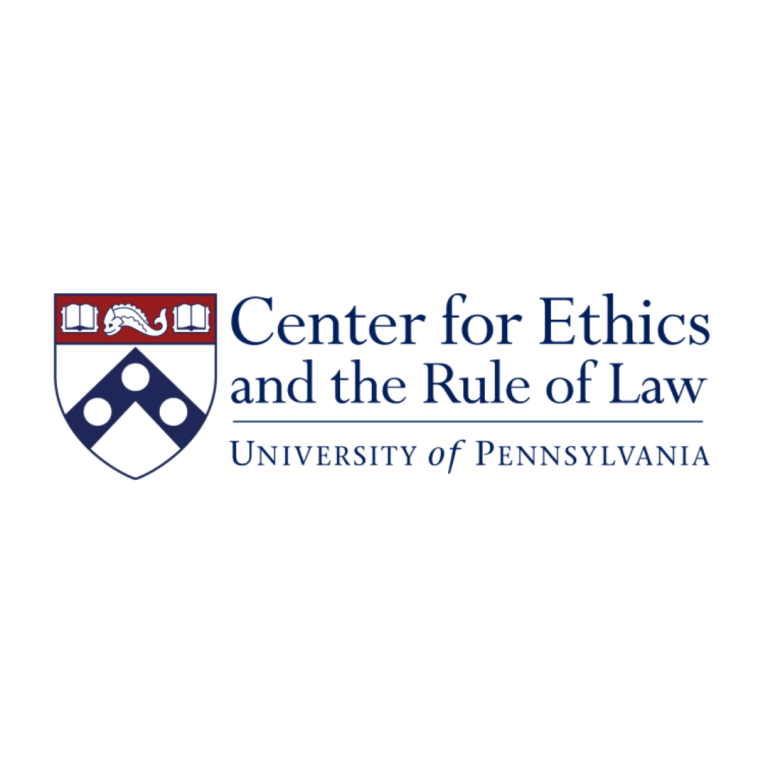“Whatever level of deference may be due the President in other contexts, far less is due when the executive branch deploys the military domestically during times of peace,” amici argue
Penn’s Center for Ethics and the Rule of Law (CERL) today submitted an amicus brief to the U.S. Supreme Court in the case Trump v. Illinois on behalf of more than 150 members of Congress in the Senate and House of Representatives. The brief responded to a request by the Court for submissions regarding the meaning of 10 U.S.C. § 12406, the provision the President has relied on to federalize the National Guard across the country, or on any other matter of relevance to the case.
“It is an honor for CERL to represent members of the Senate and House in this bicameral amicus brief supporting the interests of Congress and the American people before the U.S. Supreme Court,” said Professor Claire Finkelstein, faculty director of CERL and law professor at Penn. “The provision of federal law at issue, 10 U.S.C. 12406, is an obscure and poorly understood statute rarely used before the present moment. Since the deployment of the National Guard to Los Angeles, the Trump administration has been distorting the meaning of that provision and creating profound confusion in federal law. Our brief seeks to explain why the President cannot use this provision to federalize the Illinois and Texas National Guard and deploy them to the City of Chicago, and why federal courts must act to protect the constitutional rights of the American people that are threatened by this illegal deployment.”
“The members of Congress today reaffirmed to the Court that the law at issue does not write a blank check to the President,”said Counsel of Record Professor Brenner Fissell, distinguished senior fellow at CERL and law professor at Villanova.
Amici urge the Court to deny the Trump administration’s application for a stay of the order issued by the U.S. District Court for the Northern District of Illinois. The friend-of-the-courtbrief argues the President is not entitled to absolute deference with respect to the conditions required by 10 U.S.C. § 12406. There are three parts to amici’s argument.
First, under the statute, Congress has only authorized the President to deploy the National Guard under narrow and specific circumstances. The text of the provision does not give the President the ability to be the “exclusive judge” of whether any of the predicate conditions have been met, and “it is the role of the courts to determine both the meaning of those conditions and whether, upon the record, those required factual circumstances are present.”
Second, even when the country is at war, extreme deference to the President is inappropriate in interpreting congressionally delegated Presidential authority with regard to domestic deployments, and this is all the more so for peacetime deployments. As amici write: “[s]ubstantial deference to the executive is even less warranted when the President orders the military deployed domestically in peacetime.” Such “[e]xcesive deference,” as is sought here, would potentially allow the executive to infringe on constitutional rights of Americans and undermine the Court’s “traditional role of adjudicating disputes between states and the federal government.”
Third, the President’s actions under the provision must remain reviewable by federal courts. While Congress has—pursuant to its Constitutional powers—delegated authority to the executive, this does not mean the President’s actions are not subject to judicial review. Interpreting the provision involved here “simply involves a routine task that courts are required to undertake.” Ultimately, “[n]either the Constitution nor 10 U.S.C. § 12406 grants the President unreviewable power,” and so “the Court should not override Congress’s explicit choice.”
CERL’s representation was on a pro bono basis. These pro bono services were not solicited nor did any third party provide compensation for these services.
About CERL
The Center for Ethics and the Rule of Law (CERL) is a non-partisan interdisciplinary institute at the University of Pennsylvania dedicated to preserving and promoting ethics and the rule of law in national security, warfare, and democratic governance. CERL draws from the study of law, philosophy, and ethics to answer the difficult questions that arise in domestic and transnational crises and conflicts. Claire Finkelstein, Algernon Biddle Professor of Law and Professor of Philosophy at the University of Pennsylvania and Faculty Director of CERL, founded the Center in 2012.
CERL has been at the forefront of analysis on issues relating to the deployment of the National Guard. Together with the National Institute of Military Justice (NIMJ), Lawyers Defending American Democracy (LDAD), and Professors Claire Finkelstein, Brenner Fissell, and Mitt Regan, CERL filed an amicus brief in the case Newsom v. Trump, supporting claims by Governor Gavin Newsom and the State of California that President Donald Trump exceeded his authority in federalizing the National Guard to suppress protests in Los Angeles.






